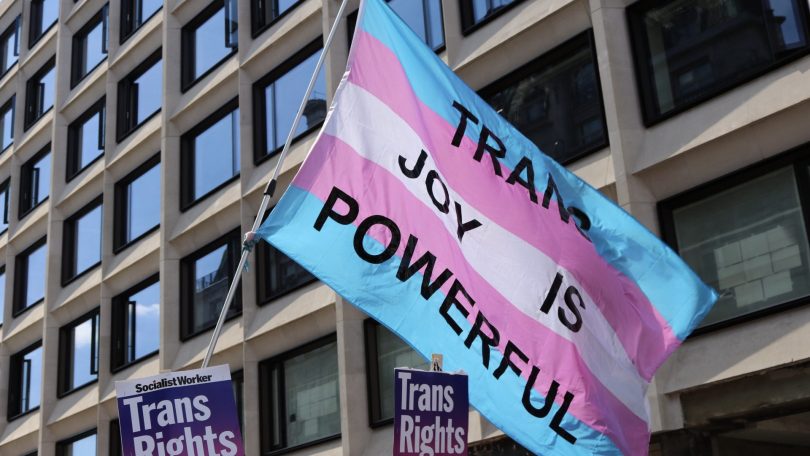LGBTQ+ charities have responded to an announcement from NHS England that they will stop prescribing puberty blockers to children.
The policy was announced on Tuesday (12 March) with NHS England saying “there is not enough evidence to support the safety or clinical effectiveness” of puberty blockers. It said the treatment of puberty suppressing hormones (PSH) should not be “routinely available at this time.”
Read next
People already on puberty blockers (less than 100 young people in England, as per the BBC) won’t have their treatment paused. The announcement is also a pause, not a ban.
“Deeply disappointing”
A Stonewall spokesperson reacted to the news by saying: “All trans young people deserve access to high quality, timely healthcare. For some, an important part of this care comes in the form of puberty blockers, a reversible treatment that delays the onset of puberty, prescribed by expert endocrinologists, giving the young person extra time to evaluate their next steps.”
They added: “We are concerned that NHS England will be putting new prescriptions on hold until a research protocol is up and running at the end of 2024.”
Mermaids, a charity supporting trans youth, said the announcement was “deeply disappointing.” They continued: “There were virtually no first appointments offered in 2023, with ever-growing waiting lists of over five years.”
The charity said it will “continue to advocate strongly for access to timely, holistic, and supportive healthcare for trans youth,” including puberty blockers. They closed: “Everyone deserves access to healthcare, and to live happy and healthy lives. Trans youth are no exception.”
As per the BBC, Health Minister Maria Caulfield welcomed NHS England’s decision on Tuesday. She added: “Ending the routine prescription of puberty blockers will help ensure that care is based on evidence, expert clinical opinion and is in the best interests of the child.”
“Gaps in the evidence”
NHS England’s new policy proceeds an independent review of gender identity services in England. An interim review by Dr Hilary Cass in 2022 found “gaps in the evidence” around puberty blockers. That followed more referrals to the Gender Identity Development Service run by the Tavistock and Portman NHS Foundation Trust. In 2021/22 there were over 5,000 referrals compared to just under 250 referrals in 2011/12.
The interim review suggested a more regional model rather than relying on the Tavistock. There would be two new centres, one in London and another in Liverpool. Both are hoped to open in April 2024.
NHS England also proposed that “outside of a research setting,” puberty blockers shouldn’t be “routinely commissioned for children” and teens. It also ran a consultation on the use of puberty blockers getting over 5,000 responses. That led to an interim policy stating puberty blockers should only be prescribed in research settings or “exceptional circumstances.”






